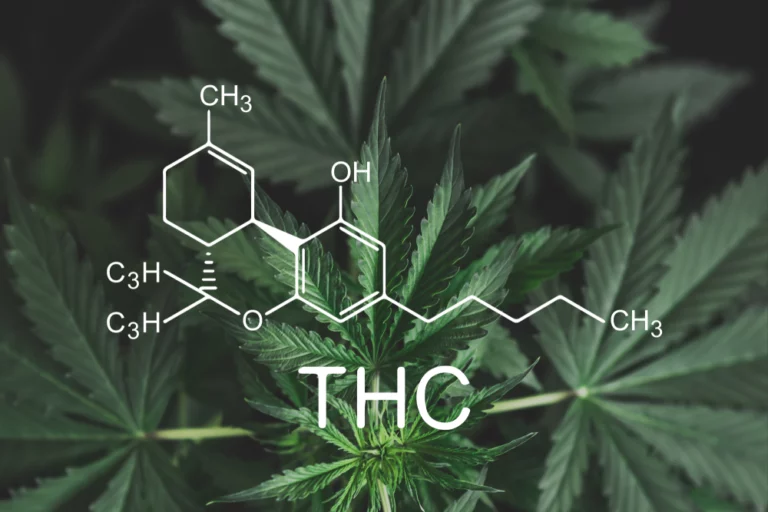4 Differences Between Amphetamines & Methamphetamines
Amphetamines and methamphetamines are powerful stimulant drugs that belong to the same class of substances, but they have distinct characteristics and effects on the human body. Understanding the differences between amphetamines and methamphetamines is crucial for recognizing their unique effects and developing practical treatment approaches.
In this article, we will dive into the differences between amphetamine and methamphetamine by looking at how they compare in terms of side effects, legality, prevalence, detox and withdrawal process, and treatment methods.
What are Amphetamines?
Amphetamines are psychoactive drugs that stimulate the central nervous system, leading to high chances of abuse and addiction. They are synthetic substances with chemical structures resembling neurotransmitters such as dopamine and norepinephrine. Amphetamines are commonly prescribed for medical purposes, including the treatment of attention-deficit hyperactivity disorder (ADHD), narcolepsy, and obesity. Some well-known amphetamine medications include Adderall, Dexedrine, and Vyvanse.

What is Methamphetamine?
Methamphetamine, commonly known as meth, belongs to the amphetamine class of drugs, making it a highly addictive and potent stimulant. Meth also affects the central nervous system but is more potent and has long-lasting effects on the body and mind than other amphetamines. Meth typically appears as a white, odorless crystalline powder or as bluish-white rocks known as crystal meth.
Methamphetamine stimulates the release of neurotransmitters such as dopamine, norepinephrine, and serotonin in the brain. This leads to an intense and long-lasting activation of the central nervous system, causing various physical and psychological health problems.
Learn More: How Long Does Meth Stay in Your System? And Everything Else You Need to Know

How Do They Compare?
Amphetamines and methamphetamines are both members of the amphetamine class of drugs and share similar chemical structures. However, there are important distinctions between the two substances in terms of side effects, legality, prevalence, detox, withdrawal symptoms, and treatment methods. Understanding and recognizing these differences can reduce the risk of overdose and bring awareness to the dangers of the substances.
1. Comparing Side Effects
The effects of amphetamines are primarily due to their ability to increase the release of neurotransmitters, particularly dopamine, in the brain. While meth is a part of the amphetamine family, they do produce different side effects when used. They do share some common side effects. However, meth tends to have more severe effects compared to regular amphetamines. The shared side effects can include:
- Increased heart rate
- Elevated blood pressure
- Appetite suppression
- Weight loss
- Dental problems
- Elevated mood
- Increased anxiety
- Intense paranoia
Read More: Understanding the Risks of Meth Weight Loss

2. Comparing Legality & Prevalence
While amphetamines and methamphetamine share similarities in terms of their effects and potential for abuse, the stronger and longer-lasting effects of methamphetamine make it a more significant concern in terms of public health and legality in various regions. It’s essential to understand to legality differences between the two substances as amphetamine has legal uses while methamphetamine does not.
- Amphetamine Legal Status: Amphetamine has limited legal uses and is primarily available by prescription for medical use. As stated previously, it is used to treat conditions such as ADHD, narcolepsy, and obesity. However, the production, distribution, and possession of amphetamines without a valid prescription are generally illegal in most countries.
- Methamphetamine Legal Status: Methamphetamine is classified as a controlled substance and is illegal in most countries, including the United States. It is listed as a Schedule II substance, indicating a high potential for abuse and limited medical use. Producing, distributing, and possessing methamphetamine for non-medical purposes are criminal offenses in most jurisdictions.
Although methamphetamine is illegal in most jurisdictions, the prevalence of the substance is higher than amphetamines. Methamphetamine is one of the most commonly abused substances in the world, with significantly high rates of methamphetamine use in the United States, Mexico, and Thailand.
3. Comparing Detox & Withdrawal
Detoxification and withdrawal processes for amphetamine and methamphetamine are similar due to their shared characteristics as stimulant drugs. Individuals can utilize medical detox to remove the substances from their systems, beginning the recovery process. Individuals undergoing detox will experience similar withdrawal processes that include various withdrawal symptoms. However, the severity and duration of withdrawal symptoms may differ between the two substances.
- Amphetamine Withdrawal Symptoms: Common withdrawal symptoms for amphetamines may include fatigue, increased appetite, disturbed sleep patterns, irritability, depression, and anxiety. These symptoms can vary in intensity and duration but usually subside within a few days to a few weeks.
- Methamphetamine Withdrawal Symptoms: Withdrawal from methamphetamine may result in more pronounced and prolonged symptoms compared to amphetamines. Individuals may experience intense cravings, severe depression, fatigue, increased appetite, disturbed sleep, irritability, and in some cases, psychosis. Methamphetamine withdrawal symptoms can persist for weeks or even months.
After successfully going through withdrawal symptoms and the detox process, individuals who engage in drug use should then turn their attention to the proper treatment methods to achieve long-lasting recovery.

4. Comparing Treatment Methods
Since amphetamine and methamphetamine share many similarities, the treatment methods for these substances are very similar. When starting treatment for drug addiction, it’s important to note that there are factors that can influence what treatment approach is used. These factors can include the severity of addiction, co-occurring disorders, and personal recovery needs. Some of the treatment methods used for amphetamine and methamphetamine addiction include:
- Behavioral Therapy: Behavioral therapies are a cornerstone of treating amphetamine and methamphetamine addiction. These therapies aim to modify unhealthy behaviors, address underlying issues, and develop coping skills to prevent relapse.
- Medication-Assisted Treatment: Medications approved for the treatment of amphetamine and methamphetamine addiction are currently limited. However, certain medications used for other substance use disorders, such as bupropion and naltrexone, may have some benefit in managing cravings or other symptoms associated with amphetamine or methamphetamine addiction.
- Dual Diagnosis: Dual diagnosis treatment addresses any co-occurring mental health disorders alongside substance abuse, benefitting individuals who use amphetamines or methamphetamine to cope with their mental health. This type of treatment method aims to treat underlying conditions to ensure long-lasting recovery.
- Support Groups: Support groups like Narcotics Anonymous (NA) can benefit those struggling with amphetamine and methamphetamine addiction. Attending these support groups provides individuals with a sense of community and ongoing support during recovery.
Learn More: Meth Rehab in Louisville, Kentucky: How to Get Help
Meth Addiction Treatment Services in Louisville, KY
Experiencing meth addiction, or amphetamine addiction, is a challenging and dangerous habit to have. Once an individual has recognized these dangers and is on the road to recovery, finding the proper treatment program can be difficult. With many options available and various treatment methods to choose from, recovery can seem overwhelming.
Louisville Recovery Center, located in Louisville, KY, can make that choice easier for you. We provide premier addiction treatment services to those struggling with substance use disorders. Our treatment programs are experiential, holistic, and individualized to ensure our clients receive the best resources and support possible. We specialize in meth, opioid, and alcohol rehab programs by treating the entire person, body, and spirit.
If you or a loved one are suffering from methamphetamine use disorder or any other kind of substance use disorder, contact us today to learn more about our programs.







